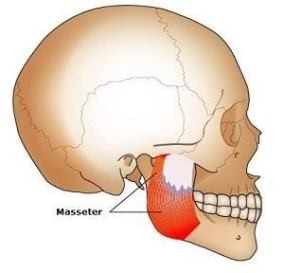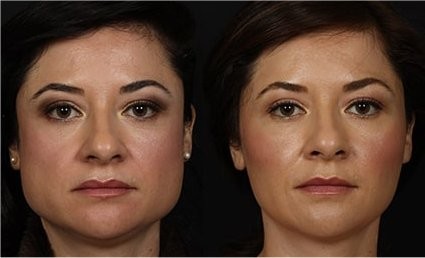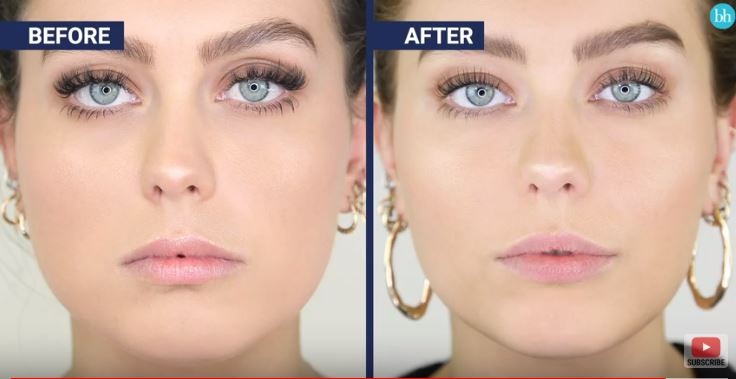Botox in Geneva: Treatment for the reduction of Masseter hypertrophy.
Botox in Geneva for the treatment of Masseter hypertrophy.
Botox can help reduce Masseter hypertrophy and redraw the angle of the jaw, making it soft at the bottom of the face. This is a new non-surgical facial reshaping procedure.

Botox-related treatments in Geneva include Botox for teeth grinding (ie bruxism) and temporomandibular syndrome (ATM syndrome).
Although a strong, square jaw is considered masculine and desirable in men, many women prefer a more rounded, thinner, oval or heart-shaped face, which creates a softer, more feminized, and attractive facial appearance.

Previously, before Botox, which revolutionized facial contouring, jaw reduction surgery was the only option for these patients. Jaw reduction surgery requires a long and often painful recovery and the results are inconsistent and / or unnatural, as well as other side effects. Botox is generally safe, effective, non-surgical, painless and has no downtime.
By reducing the width of the jaw, the Botox jaw reduction technique transforms an overly square and masculine face into a more graceful, pretty and ideally feminine oval or heart-shaped face. In some patients, an enlarged masseter muscle (a cheek muscle used for chewing) creates additional facial width that can be selectively and gradually reduced over time with Botox. Botox relaxes / weakens the muscle and therefore causes "shrinking" over time.
An enlarged masseter muscle may be genetic, as in some Asian ladies, or may be due in part to personal habits; such as excessive chewing, often associated with chewing gum or hard objects, such as meat or hard ice. Often related to stress, bruxism (that is, the grinding of your teeth at night) can enlarge your masseter muscle. Botox can also reduce bruxism. The symptoms of temporomandibular syndrome can be improved with Botox.
Are you a candidate for the reduction of masseters with Botox?
Applicants for jaw reduction / facial thinning with Botox are personally evaluated and screened by Dr. Bustani to determine the specific wishes of each patient. After careful examination, Dr. Bustani's specialized and rigorous technique usually results in a painless and bruising-free experience; and, thus, allows our patients to immediately continue with their remaining daily routine. There is no need to miss work; many patients plan during their lunch break. After treatment, expect a softening of the cheek muscles within 1-2 weeks and a noticeable softening and improvement of the jaw within 4-6 weeks. Some patients will need a touch-up or a second treatment after 2 to 4 months. Most patients require periodic maintenance treatments at 4 to 6 month intervals. Sometimes the results last longer or can be semi-permanent after 2-3 treatments,

An experienced specialist must have a keen sense of facial aesthetics as well as a thorough knowledge of the vast and complex facial anatomy.
Contraindications to reducing masseters with Botox
If possible and advised by your doctor, avoid aspirin, Advil and other anticoagulants for 5 to 7 days before treatment. Otherwise, generally, no restrictions come out. Contraindications include pregnant or lactating patients. Botox should not be injected into an area with an active skin or dental infection. Neuromuscular disorders myasthenia gravis and Lambert Eaton syndrome and certain drugs; in particular, aminoglycosides, penicillamine, quinine and calcium channel blockers require caution and / or a reduced dose of Botox.
Side effects of treatment of masseter pertrophy with Botox
Side effects are unusual, temporary, and non-hazardous in cosmetic dosages. Side effects are linked to an excessive response or involuntary spread of toxins to adjacent muscles, and these unintended effects are transient.
At the medical aesthetic center in Geneva, the reduction of the jaw by Botox is carried out by our surgeon specialist in aesthetic medicine, Dr Bustani. With over 30 years of experience.
